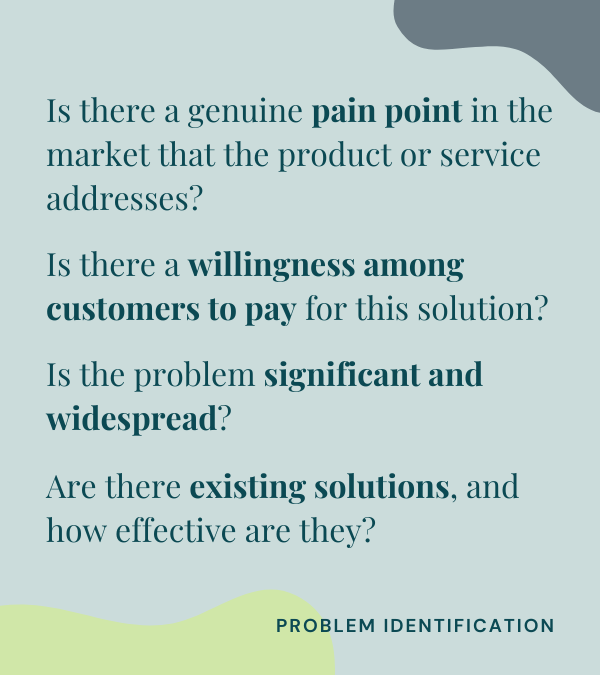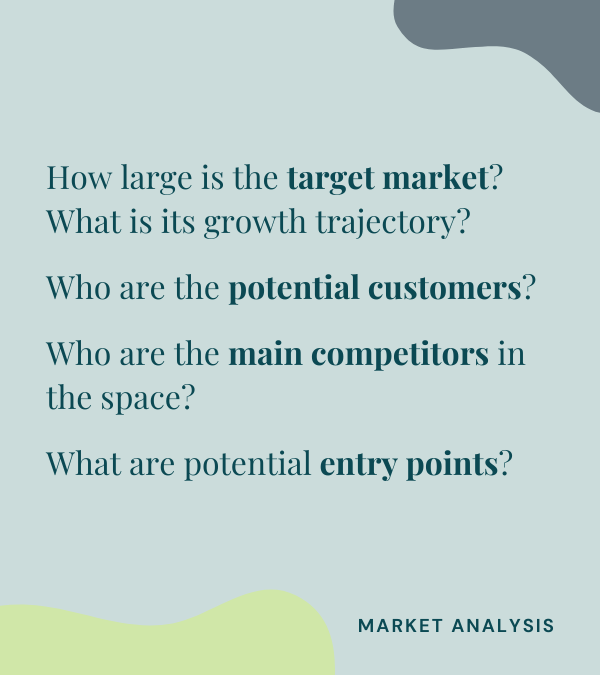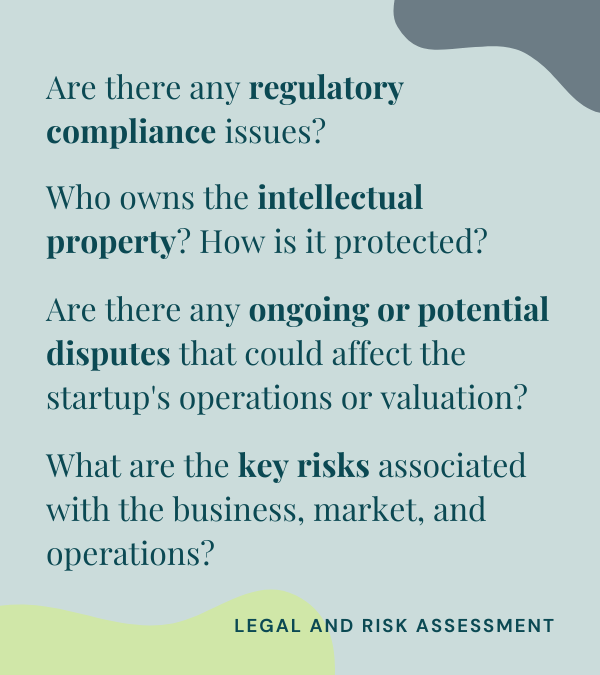7 Core Elements of Due Diligence
How do investors decide which early-stage companies to back? What factors steer them toward the right investments, driving them to commit their financial and human capital?
Due diligence.
Because investing in early-stage companies is inherently risky, thorough due diligence is essential to spot which ventures are worth taking the chance on. An investor will ask a promising founder a series of questions that assess key factors, help develop a risk mitigation plan, and spot a potential winner.
The goal of due diligence is to ensure that, as an investor, you have all the information needed to make an informed decision and to flag any potential issues or risks that could impact the investment.
Leaning on the insights shared by Lisa Oldridge, Founding Principal at Fulcrum Advisors, and Chelsea Gillett, Principal at The51 for Fund I and Fund II, as they covered in the How To Perform Due Diligence as an Angel Investor webinar, here are 7 core elements of due diligence to keep in mind when investing in early-stage companies.
💡 Watch the webinar on-demand
Replay How To Perform Due Diligence as an Angel Investor to hear Lisa and Chelsea’s discussion and get access to resources they mentioned during the webinar (think: a page from our Investor Lab playbook to use the next time you’re evaluating a pitch to keep track of what you thought about the venture, product, market, and team). Find it here.
1. Problem Identification
At the heart of any outstanding startup is a clearly defined problem that needs solving. One of the first steps in due diligence is identifying and understanding the problem that the business or startup aims to address. Investors should ask:
Is there a genuine pain point in the market that the product or service addresses?
Is there a willingness among customers to pay for this solution?
Is the problem significant and widespread?
Are there existing solutions, and how effective are they?
By identifying a real and pressing problem, investors can gauge the startup's potential impact and success of its solution.
2. Product or Solution Assessment
Once the problem is identified, the next step is to evaluate the product or solution proposed by the business. This involves looking at:
Innovation and Uniqueness: How novel and innovative is the product or solution? Does it have a clear value proposition?
Feasibility: Can the product be realistically developed and brought to market?
Differentiation: What makes this solution stand out? What sets it apart from competitors?
Assessing the uniqueness, scalability, and market fit can give insights into a startup's growth potential and competitive advantage. It’s also important to know whether it offers a competitive advantage that can sustain their venture in the long term.
3. Market Analysis
A thorough market analysis is non-negotiable in the due diligence process. Key aspects to consider include:
Market Size and Growth: How large is the target market? What is its growth trajectory?
Target Audience: Who are the potential customers? What are their characteristics and needs?
Competitive Landscape: Who are the main competitors in the space? What is their market share? What are potential entry points?
Understanding the market dynamics is key to helping investors gauge the business's positioning and prospective success in the industry.
💡 Upcoming learning opportunity
Join the live June 12, 2024 webinar on How To Evaluate the Market Potential of a Startup. Sarah Willson and Nadia Lachman from Panache Ventures will be demystifying the process of assessing startups and unpacking key factors to look for in pre-seed stage startups to determine their venture scalability. Register here.
4. Team Evaluation
The founding team behind the business plays a major role in whether it thrives or fails—often the most critical factor when it comes to success. During due diligence, investors should pay close attention to:
Experience and Expertise: Is the founder coachable? Does the team have the necessary background, skills, and experience to execute their vision?
Track Record: Have the founders succeeded in previous ventures or relevant fields?
Commitment and Chemistry: Is the team fully committed and capable of working well together under pressure?
A strong team with complementary skills and a shared vision makes all the difference in driving the business forward and navigating challenges effectively.
5. Traction and Validation
Early signs of traction can point to signs of future growth and wins. Investors should look for:
Customer Adoption: Are there early adopters or customers who validate the product's value? Is there evidence of product-market fit?
Revenue and Growth Metrics: Are there any sales? What do the growth metrics look like? Have they demonstrated demand and scalability?
Partnerships and Endorsements: Are there any strategic partnerships or endorsements from reputable entities?
Having a look into the business's progress, customer feedback, and growth trajectory can shed light on its potential for future success—proving that the market accepts the product and reducing the risk for investors.
6. Legal and Risk Assessment
As mentioned, investing in early-stage startups is risky. Deep diving into legal compliance and identifying risks helps to avoid major issues down the line. Key questions might include:
Corporate Structure and Compliance: Are the company’s incorporation documents, bylaws, and board minutes in order? Are there any regulatory compliance issues?
Intellectual Property: Who owns the intellectual property, and how is it protected? Are there any ongoing or potential legal disputes that could affect the startup's operations or valuation?
Risk Assessment: What are the key risks associated with the business, market, and operations? How does the startup plan to mitigate these risks? What is the potential impact on financial performance and investor returns?
These factors require a much more complex and in-depth list, but the bottom line is that conducting a comprehensive legal and risk assessment is essential. Taking the time to cover all bases safeguards your interests and pushes the potential for maximized returns.
7. Exit Strategy
Although we’re looking at startups and early-stage companies, an essential component of due diligence is the exit strategy. What investors should be flagging include:
Potential Exit Scenarios: What are the possible exit routes? What is the likely time horizon for each scenario?
Market for Exits: What is the current market environment for exits in the startup’s industry? What do past exit transactions reveal about potential valuation multiples?
Investor Rights: What investor rights are related to exits, such as drag-along rights, tag-along rights, and liquidation preferences?
How does the company plan to generate returns for investors? Whether it's through an acquisition, an IPO, or other means, having a clear exit strategy is vital for investors looking to realize their investments.
Understanding and focusing on these core elements of due diligence acts as a North Star for investors, helping them make informed decisions, mitigate risks, and maximize the chances of seeing strong returns. Whether you're a seasoned venture capitalist or a new angel investor, your due diligence strategy will guide you in evaluating investment opportunities and building a diversified portfolio.
Remember: early-stage investing is high risk, but it also has the potential for high rewards (plus many additional benefits!). So, approach the landscape with awareness, understanding, and confidence. Keep a running checklist of these elements in mind as you start putting your dollars to work in companies you believe in.
About Our Partnership with Small Scale Food Processor Association (SSFPA)
Aligning the intention of impact investing to our mission of affording people of underrepresented genders opportunities to learn about and activate their investing and entrepreneurship potential, we’re thrilled to partner with the Small Scale Food Processor Association (SSFPA) on their Venture-Capital Ready: Investment Training for Women Entrepreneurs program.
Venture-Capital Ready is aimed at food industry women/intersectional entrepreneurs ready to present themselves and their business for investment and scale up to meet market demand.
Within the two-year program, M51 is facilitating a four-module investor curriculum to guide participants through the fundamentals of early-stage investing with a focus on impact investing and the Canadian food and agriculture sector.
Keep an eye out on our blog and social media to follow along with the modules and as we share more resources around impact investing, food and agriculture, and building the world we want to live in—today and for future generations.
*Please note that the information provided in this blog is for informational purposes only and should not be construed as investment or financial advice.









